Text
War, Battles and Sieges: Keeping your Army in Line

The army has assembled. You have gathered all your knights and conscripts in the camp. Now we must make them an army.
Factions

Armies are not just sizeable groups of men with weapons trying to kill the other side. Well technically they are but they aren't just a mass of people. A commander can be the Monarch, a member of the royal family or anybody of rank. Under the commander are the Constables and Marshals. The troops were divided into companies of 20 men, grouped in masses of a hundred, then into thousands. Like every group project there will be factions, all using different methods to achieve a victory. Let's look at each rank of fighters.
Knight: The knight, in basic terms, is a mounted soldier. Most knights are noble or even royal yet some could be common men rewarded for bravery or leal service. The cost of maintaining a knight would be large. They would bring their own armour, horses and servants but may be provided replacements if these are lost. The knights fell into two categories- the banneret and the bachelor. The first was entitled to a banner on the field.
Light Cavalry: The light cavalry is made of mounted men who wore light armour and wielded lighter weapons such as lances or bows. The light cavalry was usually made up of wealthy commoners. Some officers in the light cavalry would be knights or have been trained the same way. Light cavalry could be used as scouts, skirmishers or outflankers.
Archers: The archers were assets to any army. The rank always included skilled and trained soldiers. To train a bowman you start with the grandfather, it was said.
Infantry: The infantry were made up of mostly unskilled fighters recruited from the common class. Some of the infantry may be skilled from old campaigns and such. This is the largest portion in may mediaeval armies. They would be armed with spears, pikes, axes, swords and perhaps shields.
Marching
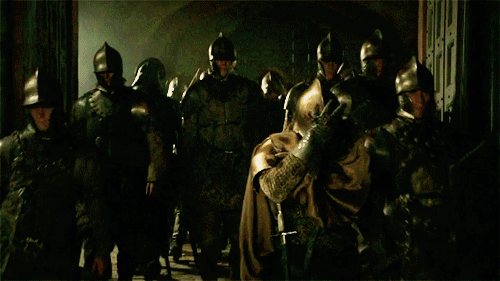
An army will have to move from one place to the next. Here is a helpful table I found (credit where credit is due).
However, one must consider the army's size, health, load and the terrain they travel over. An army on the march must travel in certain formations to keep them safe and keep the army intact. An army will always be vulnerable on the road. Here is a rough doodle of what an army on the move should be laid out like.
An army are like that goldfish you had as a kid to teach you responsibility. They need to eat. You need to feed them. And just like that goldfish, it can be a daunting task. An army will always need:
Weapons: Which can be bought, forged and pillaged from the dead enemies/allies.
Supplies

Food: Food can be bought and foraged from the land about the army. Low food will lead to starving and weakened soldiers who may desert or turn to banditry.
Water: Can be sourced from any river, stream, pool. Bad water can lead to dysentery and death.
Fodder: An army will need something to feed their pack animals with. The oxen, horses and mules of any force need fodder to survive any march.
Morale: Your army will not fight without belief. It can be belief in a righteous cause, a god, a vow, victory or financial gain. A confident army will be fearless. An army with no spirit will not fight as fiercely.
An army is a city on the move. Every city has laws and rules. The Romans were very strict with their laws.
For dereliction of duty or even desertion a the soldier would be stoned in punishment for all the lives he could have put in harm's way.
Camp Rules
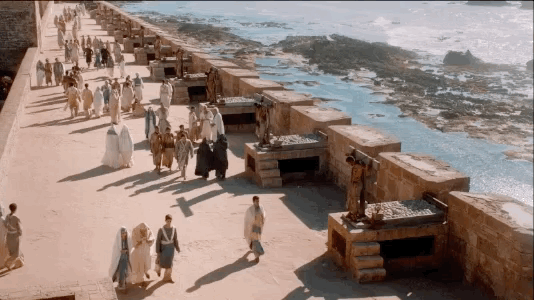
Stoning and public whippings and beating were inflicted on thieves, perjurers and anybody getting caught three times for a minor infraction
For treason, the guilty would be sewn in a sack and thrown into a nearby river or lake
(There are plenty more examples but these are the most interesting)
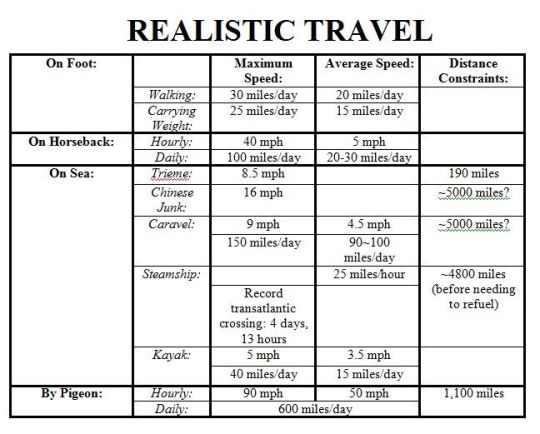
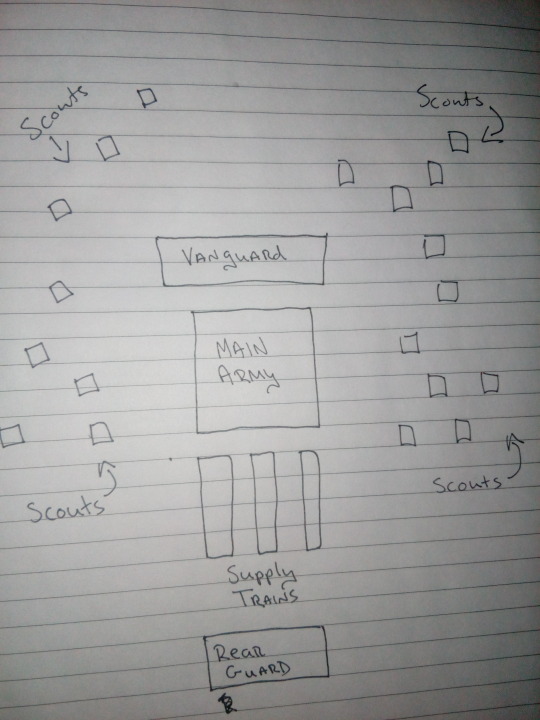
2K notes
·
View notes
Text
concept: chaotic academia
it’s not as pretty and put together as dark academia
you’re wearing two cardigans, mismatched socks and some jeans that are bordering on “just about clean enough”. nothing will stand between you and your next cup of tea/coffee/hot chocolate and adding extra sugar.
emptying your pockets at the end of the day and coming to a total of four pens, a pocket notebook, two receipts, and a highlighter.
your hair keeps falling in your face. you use a rubber band to tie it back. your fringe falls in your face. a paperclip is used to keep it back for the next ten minutes. you probably need a haircut.
the floor is the best place to study. there are so many books and pages of notes scattered around that the carpet can’t be seen anymore.
a rush before you leave class. your ID? got it. keys? got them. wait, where did your ID go again..? did you put your phone in your backpack or in any of the nine pockets on your person.
trash is piled up neatly in the corner, ready to be put into a rubbish bag and taken out. you’ll do it tomorrow, you say. you said the exact same thing last week.
you’re typing and you miss a letter. you go back to fix it. you miss a different letter. you go back to fix it. somehow you have fewer letters than you started with. you take it as a sign to take a break.
it’s time for a quick break. half an hour later you realise that you still haven’t gone back to work. Whoops.
9K notes
·
View notes
Text
Useful Writing Resources
This is an extensive list of resources for every problem you could come across while writing/planning/editing your novel. Use it well;)
{ *** } Indicate a Highly Reccommended Resource

Planning/outlining Your Work
How To Outline ***
Zigzag Method : Creating Plots
How to Plot a Romance Novel
Seven Great Sources of Conflict for Romances
Let’s talk about brainstorming
Writing Something With Meaning ***
Past Or Present Tense? : How To Decide
Writing Your Work
How To Write A Fabulous Chapter #1 ***
How to Build a Romance Thread in Your Story
The Big Book Of Writing Sex ***
6 Ways to Get Your Readers Shipping Like Crazy
Romance Writing Tips ***
20 Tips for Writing Lovable Romance Novel Heroes
7 Ways To Speed Up Your Writing ***
80+ Barriers to Love: A List of Ideas to Keep Romantic Tension High
9 Romance Writing Mistakes to Avoid
Removing the Creeps From Romance
19 Ways to Write Better Dialogue ***
50 Things Your Characters Can Do WHILE They Talk ***
How To Write Action And Fight Scenes
10 Steps To Write Arguments
9 Ways To Write Body Language
Writing Good Kissing Scenes
Writing Murders
Create And Control Tone ***
Tips for Writing Ghost Stories
Incorporating Flashbacks
12 Tips To Avoid Overwriting ***
Characters
Behind the Name
Top Baby Names
Looking for a name that means a certain thing? ***
7 Rules of Picking Names
Most Common Surnames ***
Minor Character Development
Writing Antagonists, Antiheroes and Villains
Characters With Enhanced Senses
5 Tips to Help You Introduce Characters
How Do You Describe a Character?
How To Write Child Characters
36 Core Values For Building Character
Questions To Answer When Creating Characters ***
4 Ways to Make Readers Instantly Loathe Your Character Descriptions
5 Ways to Keep Characters Consistent
Character Archetypes
25 Ways To Fuck With Your Characters
Building Platonic Relationships Between Female Characters
9 Simple and Powerful Ways to Write Body Language
33 Ways To Write Stronger Characters
Conveying Character Emotion
How to Make Readers Love an Unlikable Character…
How to Create Powerful Character Combos
How To Describe A Character’s Voice ***
Describing Clothing And Appearance ***
Career Masterpost ***
Creating Your Character’s Personality ***
Character Flaws ***
Editing
DON’T EDIT>>> REWRITE THE WHOLE THING FIRST
Ultimate Guide To Editing Each Aspect Of Your Work ***
Why You Would Read Your Novel Out Loud ***
Grammar and Punctuation ***
How To Write A Captivating First Sentence
10 Things Your Opening Chapter Should Do: A Check-List for Self-Editing ***
Saving Your Story: Finding Where It Went Wrong
How To Condense Without Losing Anything
The Stages Of Editing
Dialogue/Description Balance
3 Proofreading Tips
The Short Story Form
Chapter & Novel Lengths
Anatomy Of A Novel : Chapters and Parts ***
How To Write Chapter After Chapter Until You Have A Book ***
Where Chapter #2 Should Start
Step By Step Guide To Editing Your Draft
Writing Tool: CTRL-F (How And Why You Should Use It) ***
How To Kill A Character
25 Steps To Edit The Unmerciful Suck Out Of Your Story
5 Ways To Make Your Novel Helplessly Addictive ***
Setting
{Setting} How To Describe Setting In Your Stories ***
20 Questions To Enhance Setting
How To Bring Your Setting To Life
Miscellaneous Resources You Can Use In Between
How to Write from a Guy’s POV
The Emotional Wounds Thesaurus
Text To Speech Reader
Compare Character Heights
A Visual Dictionary of Tops
Writers Helping Writers
7 Tricks To Imrove Your Writing Overnight
Work Out/ Word Count : Exercise Between Writing ***
Most Important Writing Tips ***
Let’s talk about diversity in novels
Letting Go Of Your Story
Keeping A Healthy Writing Schedule And Avoiding Procrastination ***
How To Create A Good Book Cover
Write or Die
Tip of my Tongue
Character Traits Form
Online Thesaurus
Writing Sketchy/Medical/Law
Coma: Types, Causes, etc
Tips for writing blood loss
Gunshot Wound Care
Examples of Hospital Forms
Common Legal Questions
The Writer’s Forensics Blog
Brain Injury Legal Guide
Types of Surgical Operations
Types of Mental Health Problems
A Day in the Life of a Mental Hospital Patient
Global Black Market Information ***
Crime Scene Science
Examining Mob Mentality
How Street Gangs Work
Writers’ Block Help/ Productivity
Story Plot Generator
@aveeragemusings ‘ Cure To Writers’ Block ***
50 Romance Plot Ideas
Reading Like A Writer ***
Defeat Writers’ Block
Writing In A Bad Mood ***
Writers Block
When You’ve Lost Motivation To Write A Novel ***
What To Do When The Words Won’t Flow ***
9 Ways To Be A More Productive Writer
“I Cannot Write A Good Sentence Today” (How To Get Over It) ***
Real Writing Advice ***
Info You Need To Know & Words You Didn’t Think Of
A Writer’s Thesaurus ***
Words To Describe… ***
Words & Phrases To Use In Your Sex Scenes ***
Colors (An Extensive List Of Colors)
List Of Kinks & Fetishes ***
List Of Elemental Abilities
inkarnate.com : World Creator And Map Maker For Your Imaginary Setting
Body Language Phrases
List Of Legendary Creatures
How To Write Magic
Hairstyle References
Hemingway : Writing Checker
Body Types: Words To Describe Bodies and How They Move Around
Poisonous Herbs and Plants ***
The Psychology of Color
The Meaning behind Rose color
Types of Swords
Color Symbolism
How a handgun works
How to Write a Eulogy
Types of Crying
Avoiding LGBTQ Stereotypes ***
Superstitions and More
The 12 Common Archetypes
Language of Flowers
12 Realistic Woman Body Shapes
Using Feedback And Reviews
Turning Negative Reviews Into Positive Ones ***
Proofreading Marks : Easy Symbols To Make Reviewing/Feedback Easier ***
Authonomy
Teen Ink
Figment
Fiction Press
ReviewFuse
These Are Trusted Critique Sites ;)
95K notes
·
View notes
Photo

Hi! It’s #optomstudies with a new part to my University 101 series :) Here are 4 points, which are oft ignored by the student population… only to resurface later as some sort of hidden parable (they’re not though).

Of course, everyone studies differently, and this is a rule of thumb that has been suggested by a few universities, but what they’re trying to get at, is that you need to invest some time into studying.
Students seem to think that you can expect to pencil in a part time job a couple of days a week, church, time to cook meals and do chores, time to chill and relax, time with family and friends, footy night, time at the gym, 8 hours of sleep and what have you, but still expect to have enough time to study. I’m not saying that you can’t have a balanced work-study life (you definitely should), but you need compromise if you want good grades, and obviously with the non-necessities first (don’t go straight for cutting sleep! it’ll mess with your mental health! health is number 1!)

The human psyche is incredibly bad at estimating how long you’ll take to do your own homework. It’s actually been noted as the planning fallacy. It results from both underestimating the amount of time a task will take, as well as overestimating your ability to get the task done. The problem with uni work is, every assignment is slightly different, meaning you don’t have much of a reference guide when planning for a task.

—it’s ineffective, because you’re taking in so much information at once that it’s impossible to memorise it all. You’ll hardly retain anything and will be tired and stressed when the time comes to actually sit the exam. – Taken straight from our university’s student support site [source].
Personally, I would say it’s only about 4 weeks if you have a memorisation-heavy subject. Anything more math based may need a little less time, because you’ll mainly be doing past papers and practice questions to maximise your time. And try spaced repetition people! Use Anki, open-source flashcards that are free. You can store as many cards as you like, and it’s better than manual paper flashcards because of the algorithm it uses to choose which cards for you to revise each day.

(I didn’t want to put this one because I figured it was unoriginal, but I guess every studyblr needs to have said this point at one time.) I heard some girl say, “oh lol, i never go to lectures because i never pay attention anyway” what is the logic in sitting there for a whole hour, but just playing on your phone the whole time and tuning out?
Benefits of attending lectures - as quoted from my university website [source]
- The lecture contains copyright materials, video, annotations on slides or other multimedia materials that cannot be made available on recordings.
- The lecture incorporates problem solving in small groups, discussions or other interactions that are difficult to capture in a recording.
- The content of the lecture is needed for a follow-on tutorial, practical session or similar.
- The lecture is used to get to know you, gauge your progress, identify problems you are encountering and give you immediate feedback.
- The social advantages—You get to meet others in your course, exchange ideas and make new friendships.
- The convenience—Attending lectures in a regular timeslot can help you establish a routine for study. Some students find they don’t get around to listening to recordings when they don’t have an established routine.
And you also don’t get situations where a lecturer turns off the recording just because only a few people turned up to class… (happened to me!)
MY WEEKLY STUDY TIPS
WHAT I WISH I’D KNOWN BEFORE UNIVERSITY STUDY TIPS SERIES
0 Choosing a Degree , 1 Administration , 2 Getting to Class
3 Studying , 4 Extra-Curriculars , 5 Exams , 6 Social Life
7 Part Time Work , 8 Four Secrets Your Uni Tells You
9 Best Study Spots on Campus
10 Saving Money 1 (Food, Transport, Entertainment)
new!! 10 Saving Money 2 (Textbooks, Tax, Scholarships) new!!
11 Adapting to Uni Study coming 16.02.17!
12 How to Study From Textbooks in Uni coming 27.02.17!
SEE ALSO
new!! Weekly Planner Printable with Extra Space for Sat/Sun new!!
new!! Dealing with Bad Teachers new!!
Overcoming the Planning Fallacy coming 19.02.17!
Study Spaces Masterpost , Studying and your Visual System
Catching Up with Your Studies , Dealing with Bad Results
Sleeping and Waking Up Early , Google Keep
My 2017 Planner and Bullet Journal , Study Space , 2017 goals
+ my cute stationery + washi collection + my spreads!
928 notes
·
View notes
Video
28/100 days of productivity + TUE 6.28.16 // 12:16pm
theme of the day: “time does fly” ≖ω≖ ;; i thought it would be fun to try one of those time lapse things on my notes!
1K notes
·
View notes
Photo
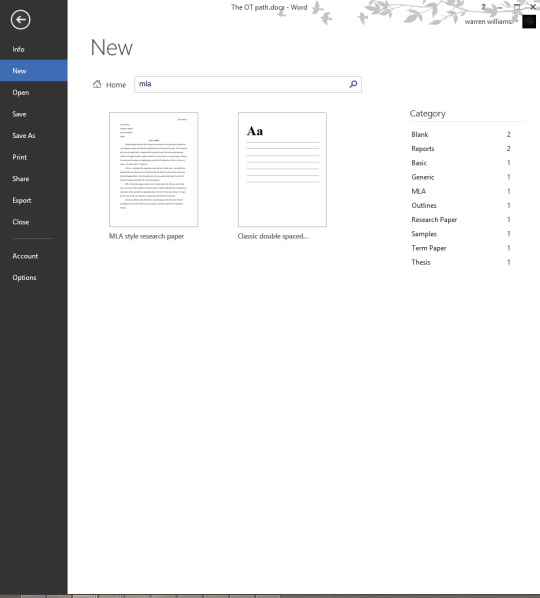
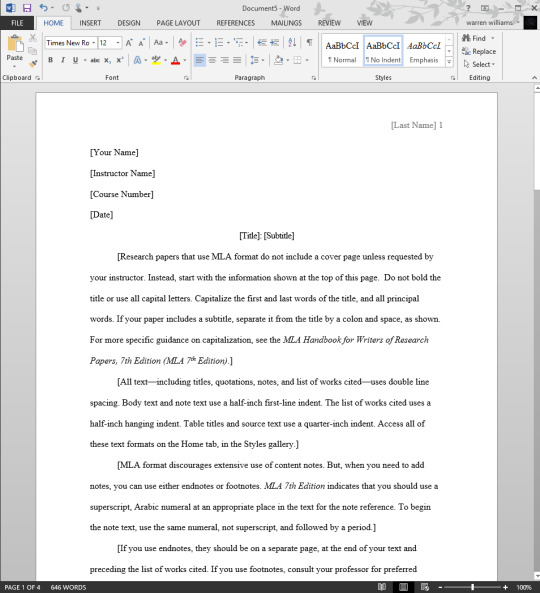
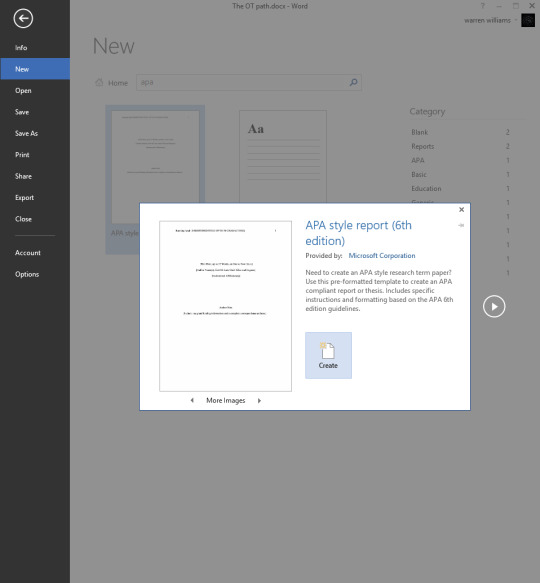
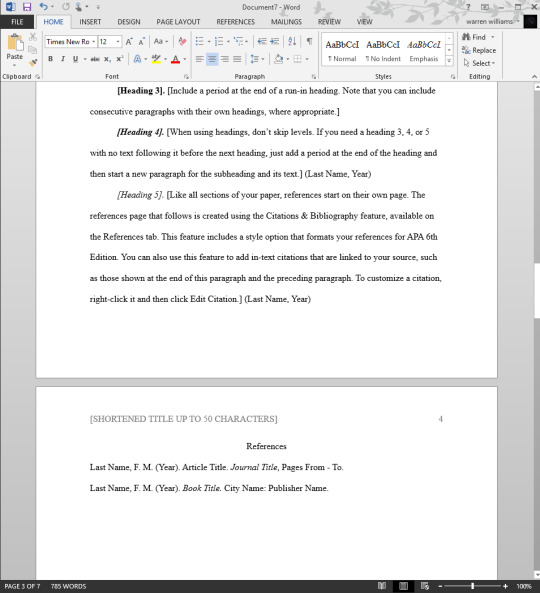
A note to all college kids, So Microsoft word has default settings for papers.
If you search MLA, or APA you can get an entire paper template.
REPEAT: Microsoft word will Format your entire paper!
You never have to spend hours lining everything up again.
218K notes
·
View notes
Photo

Learning Japanese Master Post #01.
Here’s a master post for the first 50 video lessons in the Learning Japanese video series, all view-able for free on YouTube! That’s right, each topic gets its own episode! All arranged in order and linked below. Check out all 200+ video lessons at the official YouTube channel here. And so, the journey of learning Japanese starts with lesson one, mastering Hiragana:
youtube
Intro to Japanese - The Hiragana Syllabary, Vowels, Pitch Accents, and More
The Katakana Syllabary
First Person Pronouns, or, Ways to Say “I” in Japanese
Second-Person Pronouns, or, Ways to Say “You” in Japanese
Basic Phrases (How-to Greet, Thank, Introduce Yourself and More)
XはY(です/ではありません) as “X is/is not Y”, Noun Modification with の, も as “also”
Existential Verbs (Aru, Iru, Irassharu/ある、いる、いらっしゃる)
Locational Markers へ, に, で
The Particle に as an Object Marker and Indirect Object Marker
The Particle で as an Instrument Marker
ね and よ as Final Particles
Introduction to Verbs, Dictionary Form, ます-Form
VERBing Alone with 一人で (hitori de) and Together with と一緒に (to issho ni)
Expressing “From X to Y” (Time and Space) with から and まで
Pre-ます Form + ましょう as “Let’s VERB” or “Shall we VERB”
Noun Verbs/Verbal Nouns
Polite Past Tense Form of Verbs (ました-Form)
How to say “I intend/plan to VERB” with VERB + つもりです
How-to say “Won’t you/Would you like to VERB?” with Pre-ます Form VERB + ませんか
X は Y があります as “X has Y”
X から Y as “because of CLAUSE X, CLAUSE Y”
How-to say “Why is that?” or “How come?” with どうして
Listing Nouns Indefinitely with NOUN X や NOUN Y など
もう as “already” and まだ as “yet”
Negative ない Form (Verb Conjugation)
How-to say “Go/come/return to do VERB” with Pre-ます Form VERB + に + (行く/来る/帰る)
How-to say “I can VERB” with Dictionary Form VERB + ことが出来る
Answering to Negative Yes-No Questions
Introduction to Adjectives (い-adjectives and な-adjectives)
Basic Introduction to the Particles は and が
X でYがある as “There is Y (an activity) in/at X”
Introduction to Adverbs - Common Degree Adverbs
The Particle が as “But/However”
X は(どう/いかが)ですか as “How is X?”
XはどんなYですか as “What kind of Y is X?”
Kochira (こちら)/Sochira (そちら)/Achira (あちら) as “this/that way”
Introduction to the て-Form (Verb Conjugation)
How-to Say “Please do VERB” (て-Form VERB + 下さい/下さいませんか)
How-to Say “am/is VERBing” (Ongoing Action) (て-Form VERB + いる)
The Particle まだ as “still”
How-to say “I like/love/hate Y” with X はY が(好き/嫌い)です
How-to Say “X is good/bad at Y” - XはYが(上手/下手/とくい)です)
X にする as “decide on X”
How-to Request an Object with X を(下さい/くださいませんか)
た-Form VERB +ことがある as “have VERB-ed before”
かかる as “it costs X/it takes X time”
ぐらい and ごろ(に) as “about/approximately”
Comparing 2 Objects/Entities (XとYとでは、どちらの方がAですか)
Comparing 3 or More Objects/Entities (XとYとZとでは、Xが一番A)
Modifying Nouns with Clauses
Support Learning Japanese on Patreon!
Please do consider checking out our milestone goals on Patreon and becoming a patron to support the continuation of this video series and expansion of the curriculum!
https://www.patreon.com/learningjapanese
This video series is presented by becauseofdreams
http://becauseofdreams.com/
19K notes
·
View notes
Text
Resources for learning Japanese - my recommendations
Seeing lists of resources is always cool, so have some of my recommendations. This is the list of things (websites, apps) I’m using or I had been using in the past and that I can really recommend. It doesn’t include textbooks or random Japanese sites I use for practicing my reading, because it was getting way too big. It’s not an entry level list (although I think some of these will be helpful for people new to Japanese, too), so I skipped the stuff for learning kana. I hope at least some of those will be helpful to you!
VOCABULARY
Memrise – yeah, I know, everybody knows memrise by now, but I honestly can’t recommend it enough. My favorite Japanese course at the moment is Core Japanese Vocabulary - I like it, because unlike many other courses, it doesn’t have separate levels for hiragana and kanji (those are kinda pointless, in my opinion, making you type the same thing twice as often) and I like the way the words are organized. There’s a lot of basic words that I already know, but the ignore function is there for a reason.
I also enjoyed 2136 Joyo Kanji by Grade - the course I used to learn the meaning of all the joyo kanji. I’m a bit hesistant recommending it, because it only has English meanings and no example words – but for me it was really great, because just recognizing general meaning of the character greatly improved my reading comprehension. It’s not a method for everybody - you can try for yourself and see if it’s something you wanna do.
Iknow – this one is not free (the only non-free resource on this list) and I was wary of it, because with Japanese, there is a lot of paid apps/websites that offer basic things you can easily get for free elsewhere… But I found a promo code for 3 free months on there, gave it a shot and I’m absolutely in love. It’s similar to Memrise, only it has official courses made by staff and they have example sentences for every word, read by professional Japanese voice actors, as well as sentence making exercises and several different ways to check if you know the words you’re studying. I can honestly recommend it.
Renshuu - Renshuu is not only a vocab site, it also has grammar explanations, a language forum (which seems to have more newbies than native or very advanced users, so be careful while reading other people’s Japanese) and games/discussion prompts, so it’s pretty cool. I think it’s best for the vocab, though. It has many, many lists, some for JLPT, some using vocab from textbooks. There’s also a custom list creator and it’s really easy to use.
Kanji Sempai – a really nice vocab app, it shows you words and then quizzes you on them. The name is a bit misleading, because it doesn’t focus on kanji all that much, but it’s a solid vocab app.
Kotoba chan – a simple vocab quiz app with example sentences (that sometimes show sentences with the homophones of the words they were supposed to show, but oh well), very easy to use.
DICTIONARIES
www.jisho.org – Simple and great, jisho has been my friend since I’ve started learning Japanese. They have a lot of entries, not only words, but also idioms, they have a special section for kanji and example sentences, too. They are also better (although not perfect) than many other dictionaries when it comes to slang.
http://vvlexicon.ninjal.ac.jp/db/ - a pretty awesome dictionary of compound verbs. It has a Japanese-English version (and also Chinese-English and Korean-English), but I feel it works best as a monolingual dictionary. Just reading the definitions and figuring out what those compound words mean make for a nice reading practice, I think.
http://kotowaza-allguide.com/ - a monolingual dictionary of Japanese proverbs, really fun and informational.
Rikaichan – it’s a pop-up dictionary for Mozilla Firefox (it has versions for other browsers, too, but I haven’t tested those) that shows you the meaning of the word when you hover your mouse over it, as well as the furigana. It’s really, really helpful. Some people say that it’s easy for something like that to become a crutch and I see their point, but I think it’s good for me, as it keeps me from getting discouraged while reading longer texts. Definitely my favorite resource ever.
LISTENING
Delvin Language - this one isn’t really for advanced students (after a placement test I was starting from the most advanced level, and my listening skills leave MUCH to be desired – and I still find some of what I get to be too easy), but it’s a nice practice, since it uses clips from Japanese drama/anime or informative youtube videos about Japan. It’s both listening comprehension practice and a way to acquire new vocabulary.
Nihongo no mori – it’s an absolutely amazing youtube channel ran by very lovely native Japanese speakers. I put this in the listening category, but those videos are about grammar and vocab, so watching them helps in so many ways. I’m watching the N3 and N2 stuff, but I know they also have some videos for beginners and N1 students.
KANJI
Anki Aniki – it’s an iOS app for learning kanji. It’ll show you a set number of kanji every day, along with their meaning and possible readings, and then quiz you on it. I find it pretty helpful, even though there are no example words and I usually don’t like the idea of learning the readings without any context – but as a supplement to learning kanji in a more conservative way it’s pretty good.
GRAMMAR
Jgram- it’s kind of a grammar wiki. Many, many entries, with a lot of example sentences (some of their translations to English are really weird sometimes, but most of it is perfectly fine).
Maggie Sensei – a site that is not only absolutely adorable, but also very helpful. It has detailed explanations, many example sentences and a lot of lessons available. A lot of cute doggie pictures, too.
Japanese test 4 you- this site has a lot of information about grammar for all JLPT levels, with many example sentences and also all kinds of tests (grammar, listening, vocab, kanji). I’ve just found it recently, but it’s already proven really useful to me.
7K notes
·
View notes
Photo

A compilation of chrome extensions and iOS + Android apps (some are paid and some are free) °☆.。.:*・°☆
| For your computer |
fliqlo
momentum
lanes
clarity
embark
minimal clock
infinity
currently
polar clock
caffeine
f.lux
be limitless
leoh
dream afar
| For your note taking |
evernote
onenote
simplenote
somnote
iNotes
notability
notes plus
google keep
quip
inkflow visual notebook
jot
good notes
noteshelf
| For your to-do lists |
wunderlist
moo.do
todoist
habitica
trello
any.do
priority matrix
do
glass planner
swipes
timetune
| For your planners + calendars |
myStudyLife
myHomework
sunrise calendar
google calendar
plan
sol calendar
| For your timing + focus |
tide
forest
pomotodo
flat tomato
pomello
pomodrone
clearfocus
tomato timer
30/30
focusnow
tasks and measures
self control
stayfocusd
timewarp
cold turkey
atimelogger
writer’s block
| For your presentations |
prezi
powerpoint
emaze
raw shorts
powtoon
| For your storage |
google drive
dropbox
| For your mindmaps + diagrams |
mindmeister
lucidchart
goconqr
gliffy
google drawings
| For your tests + flashcards |
goconqr
quizlet
flashcards+
anki
| For your writings |
zotero
grammarly
hemingway
| For your health |
fabulous
plant nanny
safetrek
sleep bot
sleep better
to bed
nike + running
waterlogged
period tracker
weight loss coach
health mapper
medisafe
| For your inner peace |
stop, breathe & think
headspace
pacifica
noisli
sleepio
infinite storm
relax melodies
calm
sam
thunderspace
mindshift
taomix
i am
pillow
binaural
55K notes
·
View notes
Photo

Hey guys! For my first master-post, I’ve decided to put together some educational YouTube channels to help advance your knowledge and learning!
I love watching videos from these channels as they can both be a form of entertainment and studying! You can watch them during study breaks, free time or as part of your studying. Below are some of my favourites and recommendations from other students:
SCIENCE
Crash Course: Biology, Chemistry, Physics, Astronomy, Anatomy & Physiology ,etc.
Veritasium
SciShow
ScienceShorts
AsapSCIENCE
Kurzgesagt
MinutePhysics
thebrainscoop
It’s Okay To Be Smart
Vsauce
Bill Nye The Science Guy
MATHS
mathbff
standupmaths
Numberphile
mathematicsonline
PatrickJMT
yaymath
ENGLISH
Lisa’s Study Guides: English
Crash Course: Literature
Online Writing Tips
Button Poetry
Savannah Brown: Poetry
ART
Mark Crilley
The Art Assignment
Montana Colors
Gagosian Gallery
VamosART
Fine Art-Tips
GEOGRAPHY
GeographyHub
GeographyNow
GEOgraphy Focus
STRATFORvideos: Geographic Challenges
WonderWhy
HISTORY
AlternateHistoryHub
Extra History
Crash Course: World History, World History 2, US History
Keith Hughes
MrBettsClass
LANGUAGES
Learn French with Pascal
Learn Italian with Lucrezia
sweetandtastytv (Korean)
Learn Arabic with Maha
Spanish is your amigo
Deutsch für Euch
GENERAL
Thomas Frank
Khanacademy
Vsauce
TED-Ed
TED Talks
THNKR
Life Noggin
PBS Idea Channel
478 notes
·
View notes
Note
what podcasts do you recommend for beginner french learners?
https://radiolingua.com/coffeebreakfrench/ Coffee Break French is great and has lessons ranging from absolute beginner level (check the very first podcasts) to advanced learners.https://learnfrenchbypodcast.com/ The first few lessons of these podcasts are suitable for beginners as well, they cover basic phrases and topics in French.https://www.newsinslowfrench.com/ News in Slow French is very good, although it may be more appropriate for upper-beginner and intermediate learners.
647 notes
·
View notes
Photo

1.5.17
results of my procrastination
2K notes
·
View notes
Photo

Hey Everyone! When I was younger, I used to read a ton. As a direct result of that, my writing and reading were on point. Recently, however, I haven’t been reading as much, and as a result, my writing isn’t as good as I want it to be (albeit, still pretty good). I’ve decided to read all the books on this list over the next 1 and a half years to get back into reading and to improve my writing. Enjoy! :)
1. To Kill A Mockingbird by Harper Lee
2. The Great Gatsby by F. Scott Fitzgerald
3. Pride and Prejudice by Jane Austen
4. Animal Farm by George Orwell
5. Jane Eyre by Charlotte Brontë
6. The Catcher in the Rye by JD Salinger
7. The Adventures of Huckleberry Finn by Mark Twain
8. Macbeth by William Shakespeare
9. Lord of the Flies by William Golding
10. Hamlet by William Shakespeare
11. Brave New World by Aldous Huxley
12. The Scarlet Letter by Nathaniel Hawthorne
13. Romeo and Juliet by William Shakespeare
14. A Tale of Two Cities by Charles Dickens
15. The Ecological Rift by John Bellamy Foster, Brett Clark, Richard York
16. This Changes Everything: Capitalism vs The Climate by Naomi Klein
17. Catch-22 by Joseph Heller
18. The Crucible by Arthur Miller
19. The Odyssey by Homer
20. The Red Badge of Courage by Stephen Crane
21. Wuthering Heights by Emily Brontë
22. Slaughterhouse-Five by Kurt Vonnegut
23. Robinson Crusoe by Daniel Defoe
24. The Canterbury Tales by Geoffrey Chaucer
25. The Stranger by Albert Camus
26. Frankenstein by Mary Shelly
27. The Grapes of Wrath by John Steinbeck
28. Beowulf by Unknown
29. The Systems View of Life: A Unifying Vision by Fritjof Capra, Luigi Luisi
30. All Quiet on the Western Front by Erich Maria Remarque
31. A Midsummer Night’s Dream by William Shakespeare
32. Heart of Darkness by Joseph Conrad
33. Treasure Island by Robert Louis Stevenson
34. The Glass Menagerie by Tennessee Williams
35. Faust: First Part by Johann Wolfgang von Goethe
36. Crime and Punishment by Fyodor Dostoyevsky
37. The Awakening by Kate Chopin
38. Candide by Voltaire
39. The Color Purple by Alice Walker
40. The Metamorphosis by Franz Kafka
41. Oedipus Rex by Sophocles
42. Uncle Tom’s Cabin by Harriet Beecher Stowe
43. Steppenwolf by Hermann Hesse
44. One Day in the Life of Ivan Denisovich by Aleksandr Solzhenitsyn
45. The Bell Jar by Slyvia Plath
46. The Call of the Wild by Jack London
47. Walden by Henry David Thoreau
48. Antigone by Sophocles
49. Things Fall Apart (The African Trilogy, #1) by Chinua Achebe
50. Gulliver’s Travels by Jonathan Swift
51. The Last of the Mohicans (The Leatherstocking Tales #2) by James Fenimore Cooper
52. Madame Bovary by Gustave Flaubert
53. Beloved by Toni Morrison
54. Vanity Fair by William Makepeace Thackeray
55. Selected Tales by Edgar Allen Poe
56. Fahrenheit 451 by Ray Bradbury
57. 1984 by George Orwell
58. Don Quixote by Miguel de Cervantes
59. The Sound and the Fury by William Faulkner
60. One Hundred Years of Solitude by Gabriel García Márquez
61. The Picture of Dorian Gray by Oscar Wilde
62. A Good Man is Hard to Find and Other Stories by Flannery O’Connor
63. Pygmalion by George Bernard Shaw
64. As I Lay Dying by William Faulkner
65. Invisible Man by Ralph Ellison
66. The Three Musketeers by Alexandre Dumas
67. A Doll’s House by Henrik Ibsen
68. Narrative of the Life of Frederick Douglass by Frederick Douglass
69. Tess of the D’Urbervilles by Thomas Hardy
70. A Farewell to Arms by Ernest Hemingway
71. A Portrait of the Artist as a Young Man by James Joyce
72. Waiting for Godot by Samuel Beckett
73. Moby-Dick; or, The Whale by Herman Melville
74. The Iliad by Homer
75. Inferno (The Divine Comedy #1) by Dante Alighieri
76. Babbitt by Sinclair Lewis
77. An American Tragedy by Theodore Dreiser
78. The History of Tom Jones, a Foundling by Henry Fielding
79. Long Day’s Journey into Night by Eugene O’Neill
80. War and Peace by Leo Tolstoy
81. Cyrano de Bergac by Edmond Rostand
82. The Hunchback of Notre-Dame by Victor Hugo
83. The Mill on the Floss by George Elliot
84. The Cherry Orchard by Anton Chekhov
85. Their Eyes Were Watching God by Zora Neale Hurston
86. Bartleby the Scrivener by Herman Melville
87. Doctor Zhivago by Boris Pasternak
88. The House of Mirth by Edith Wharton
89. Selected Essays by Ralph Waldo Emerson
90. Leaves of Grass by Walt Whitman
91. The Good Soldier by Ford Madox Ford
92. Call it Sleep by Henry Roth
93. Fathers and Sons by Ivan Turgenev
94. The Portrait of a Lady by Henry James
95. The Adventures of Augie March by Saul Bellow
96. A Death in the Family by James Agee
97. The Turn of the Screw by Henry James
98. The Magic Mountain by Thomas Mann
99. Go Tell It on the Mountain by James Baldwin
100. Death Comes for the Archbishop by Willa Carther
101. To the Lighthouse by Virginia Woolf
18K notes
·
View notes






